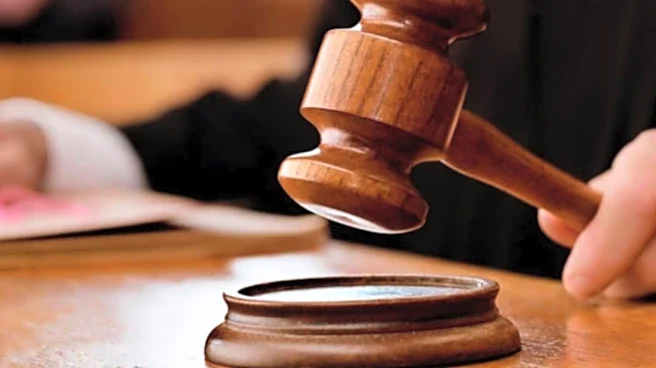The Allahabad High Court recently pulled up Uttar Pradesh’s health department after discovering that two different birth certificates, carrying two different dates of birth for the same person, had been issued from two separate authorities within the state.
Calling the situation “prima facie a mess”, the court sought an explanation from the Principal Secretary, Medical and Health, and directed him to file a detailed affidavit on how such contradictory documents were allowed to enter official records.
The order came in a writ petition filed by Shivanki, who had challenged actions of the Union of India and two other respondents. During the proceedings, the counsel representing the UIDAI Regional Office in Lucknow submitted documents showing that
the petitioner possessed not one but two birth certificates and both were issued by Registrars of Births and Deaths but with conflicting details. The court formally accepted the documents as part of the record.
The first certificate, issued by the Registrar at the Primary Health Centre in Manauta, lists the petitioner’s date of birth as December 10, 2007, with the registration dated August 21, 2020. The second certificate, issued by the Gram Panchayat at Harsinghpur, records a completely different date: January 1, 2005, and was registered on November 14, 2022. Both certificates were purportedly valid and had been issued by government-authorised centres.
The bench of Justice Atul Sreedharan and Justice Anish Kumar Gupta expressed concern not merely about the petitioner’s case but about what it suggests regarding the broader functioning of the state’s birth registration system. The court observed that the facts indicated that “anyone at any point of time can get a date of birth certificate issued with whichever date they want from wherever in the state”, describing it as reflective of “dishonesty existing at all levels”.
Birth certificates serve as a foundational identity document for citizens, relied upon for Aadhaar enrolment, school admissions, age verification, employment, government benefits, and even criminal proceedings.
The court noted that forged or inconsistent documents pose serious risks, especially when they are frequently accepted as strong prima facie evidence in judicial processes.
Given these implications, the judges directed the Principal Secretary, Medical and Health, to explain what processes exist to prevent fraudulent issuance of birth certificates, how such irregularities were allowed to occur, and what mechanism, if any, ensures that only a single authentic birth record remains linked to an individual.
The court further directed the Principal Secretary to set out, in his affidavit, the corrective steps the department proposes to implement immediately, should it conclude that the current system is indeed “broken”.
To facilitate this, the court ordered that the Principal Secretary be impleaded as respondent no. 4. Counsel appearing on his behalf accepted notice. The matter has been posted for further hearing on December 10, 2025, by which time the required affidavit must be filed.


/images/ppid_59c68470-image-177094504615411398.webp)
/images/ppid_a911dc6a-image-177094403738091205.webp)

/images/ppid_59c68470-image-177094778070247070.webp)

/images/ppid_59c68470-image-177094774796122738.webp)
/images/ppid_59c68470-image-177094760561149068.webp)
/images/ppid_59c68470-image-177094753760312086.webp)
/images/ppid_59c68470-image-17709476750941928.webp)
/images/ppid_59c68470-image-177094757431594714.webp)
/images/ppid_59c68470-image-177094764650175790.webp)
/images/ppid_59c68470-image-177094770953263948.webp)
/images/ppid_59c68470-image-177094761449961991.webp)
/images/ppid_59c68470-image-177094753833787776.webp)